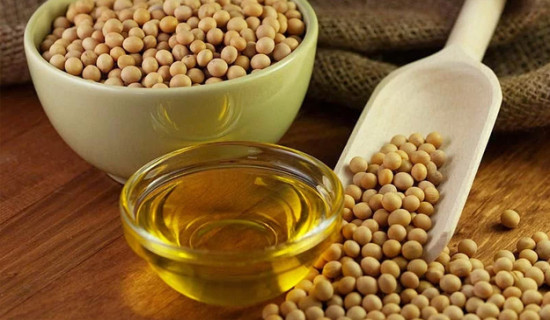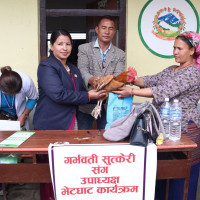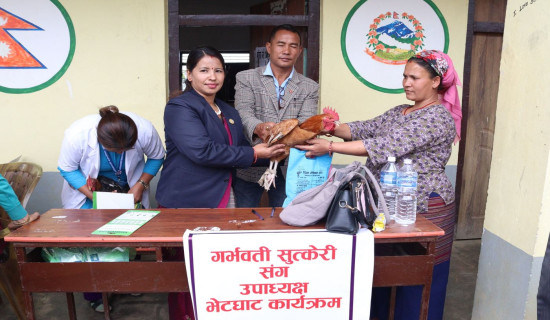- Saturday, 5 July 2025
Earthen pot Lassi becomes a lifeline for survival
By Sudha Dev,Saptari, May 6: For a 50-year-old Ranju Kumari Sah of Ward No. 4, Rajbiraj Municipality, days are filled to the brim with making and selling earthen pot (Matka) lassi.
From 9 A.M. to 9 P.M., she is seen busily preparing lassi and serving it to a stream of eager customers. Her stall has become a hotspot for lassi lovers, especially during the summer months when business surges. On average, she sells between 10 to 20 earthen pots of lassi daily.
The success began after she started selling lassi alongside snacks at her eatery. Given Rajbiraj’s hot climate, business booms from April to November. The income generated during these seven months is sufficient not only to support her family but also to cover the wages of the five workers employed at her shop.
She shared, “Lassi didn’t just make me self-reliant—it became my lifeline. It has also allowed me to provide employment to five others.”
Although her husband had been running the snack stall since before their marriage, it was 25 years ago—motivated by her brother—that she began making and selling lassi as something new.
When her husband passed away 16 years ago, her son was only four years old while her daughter was eight. In the 14 years of marriage prior to his death, she had only been into the shop about three times. But when the responsibility of running the shop completely fell on her shoulders, she had no choice but to carry it forward. Over time, however, what started as a necessity has now become a passion. “At first, it was compulsion,” she said. “Now, it feels like a companion in life. If the shop is closed even for a day, I feel as if something’s missing.”
From low-income individuals to people in high-ranking positions, all types of customers visit her stall for a glass of lassi. Priced at just Rs. 100 per matka, it's affordable even for ordinary citizens.
Through her earnings from the lassi shop, she managed to educate her daughter up to a Bachelor’s level and arranged her marriage. Her son has been successfully educated as an engineer.
She noted how carefully the lassi must be prepared—from how much curd is to be used, to the precise timing and quantity of each ingredient—highlighting that maintaining quality has always been her priority. According to her, there are no difficulties in sustaining the business as long as quality is maintained.
Dipak Das, a local from Ward No. 4 of Rajbiraj Municipality, shared that this was the very first shop in Rajbiraj to serve lassi. “Back in the day,” he said, “you could get a glass of lassi for Rs. 10 served in glass tumblers.”
The shop, once well-known simply as the lassi shop, became famous under the name Matka Lassi after it started serving lassi in traditional clay pots. With a taste reminiscent of the famous lassi of Banaras, this lassi attracts not just locals, but also those who’ve heard about it from far and wide.
















